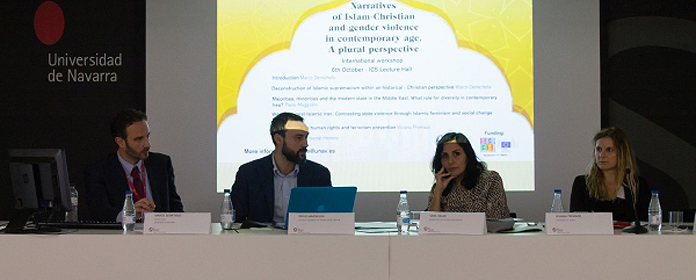"Islamic radicalization is more than a symptom of the failure of integration policies," says Italian researcher
Viviana Premazzi bet in the ICS of the University of Navarra for promote the recognition of immigrants as active members of the community.

PHOTO: María Jesús Ruiz
"Islamic radicalization is more than a symptom of the failure of integration policies". This was stated at the University of Navarra by Viviana Premazzi, researcher at the department of Cultures, Politics and Society of the University of Turin (Italy). She made these statements at the framework of a workshop organized by framework Demichelis, researcher Marie Curie del Institute for Culture and Society (ICS).
"Radicalization is a complex process," he argued. "Its causes are very heterogeneous, ranging from the search for identity to resentment over discrimination suffered and economic disadvantages," he added.
To "counteract the development of reactive identities and destructive attitudes against society", the expert bet on promote "the social inclusion of immigrants and their descendants, Muslims and non-Muslims, their recognition as active -and not only problematic- members of a community, with rights and duties, with the same opportunities".
Second generation immigrantsHe indicated that his country, Italy, tried to move along these lines with a citizenship law, but it has been frozen since 2015. As a result, the stalemate "is leading to development of tensions and reactive attitudes on the part of second-generation people, who, although they perceive themselves as 100% Italian, are still treated as Italians with permission from residency program", he lamented. "The reform - he stressed - is increasingly necessary and would benefit almost a million young people".
In addition to Premazzi, other speakers at workshop included Sara Hejazi, researcher at department of programs of study Religious at the Bruno Kessler Foundation, who focused on state violence against women in contemporary Iran; framework Demichelis, who analyzed Jihad in the first century of Islam; and Paolo Maria Leo Cesare Maggiolini researcher and professor in Islamic Asian History at the Catholic University of the Sacred Heart, who spoke on the relationship of Christians with Iraqi power in the era of Saddam.




